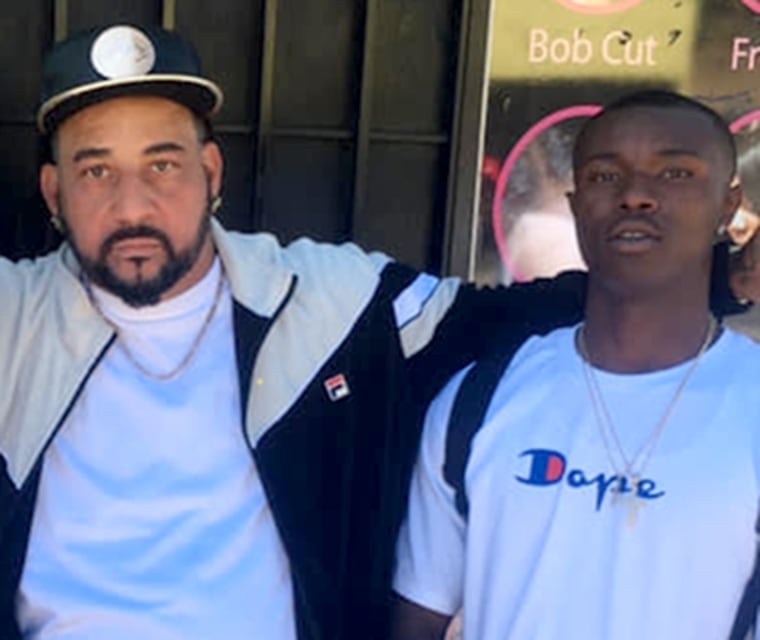VALLEJO, Calif. — Almost three weeks after a Bay Area rapper was killed by police after he was found unresponsive in his car with a gun on his lap, attorneys for his family filed a claim Thursday signaling their intent to sue and alleged that the "entire operation was bungled from start to finish."
The claim against the city of Vallejo says the six officers who shot Willie McCoy, 20, on the night of Feb. 9 were negligent and caused his wrongful death. The law firm of Oakland civil rights attorney John Burris, which is representing the family, previously said that McCoy was struck about 25 times in the upper body.
According to the claim, "the six person firing squad shot Mr. McCoy ... in the head, ear, neck, chest, arms, shoulders, hands, and back."
In addition, a second claim was filed in an unrelated case of a Marine veteran named Adrian Burrell, who said he was assaulted by a Vallejo police officer in January and suffered a concussion — an encounter that was captured on cellphone video and sparked social media accusations of abuse of power.
Burris' law firm is also handling the second case, and both incidents have put a renewed focus on the use of force and policing tactics within the Vallejo Police Department, which has about 100 officers. McCoy's shooting was the eighth involving an officer firing their weapon since January 2017.
The city attorney's office did not immediately respond to a request for comment.
A rally is planned for Thursday afternoon in Vallejo for McCoy and other people who were killed or physically assaulted by police.
McCoy, who went by the stage name Willie Bo, was waiting at a Taco Bell drive-thru at around 10:30 p.m. when employees found him and called police, authorities said. Officers said they noticed a handgun on his lap, and determined the doors of his Mercedes Benz were locked as they contemplated retrieving the firearm.
Instead, they decided to box in the Benz, which was in drive, to prevent any erratic movements by McCoy. Police said that's when he woke up.
According to officers, McCoy failed to heed commands and he began reaching down toward his gun. Six officers on the scene, "fearing for their lives," opened fire within four seconds, police said in an earlier news release.
It's unclear exactly how many bullets struck McCoy. A coroner's report and toxicology results have not yet been released, and police have indicated that bodycam footage from officers might not be made public until early April, although the family would be permitted to view the video sooner.
"Release of information at this time would jeopardize the integrity of the investigation and would interfere with the investigators' ability to conduct a thorough and impartial investigation," Vallejo police said in response to requests to review the footage.
Under state legislation signed last fall, law enforcement agencies in California will be required beginning in July to release any video within 45 days following the firing of a gun or use of deadly force by an officer. Departments can delay the release for up to 30 days if doing so interferes with the investigation.

But the family's claim said the police's operation was "bungled" for several reasons, including that they failed to develop a plan of action to ensure the safety of all people involved, the officers didn't retreat to a safe position, and they failed to notice that the car's passenger side window was only covered in a sheet of plastic, so they could have opened the car that way to retrieve the gun.
Police said a semiautomatic handgun was found at the scene and it was reported stolen from Oregon. The department created a web page this week about the incident to allow the public to "separate fact from fiction regarding this investigation."
David Harrison, McCoy's cousin and music manager, said the officers need to be held accountable and he'd like for the bodycam footage to be made public.
"They thought he was another no-good black kid, and oh well, we'll take him out," said Harrison, who viewed McCoy's body.
"The way they killed him — it was out of hate," he added. "As if they didn't want him to exist anymore."

